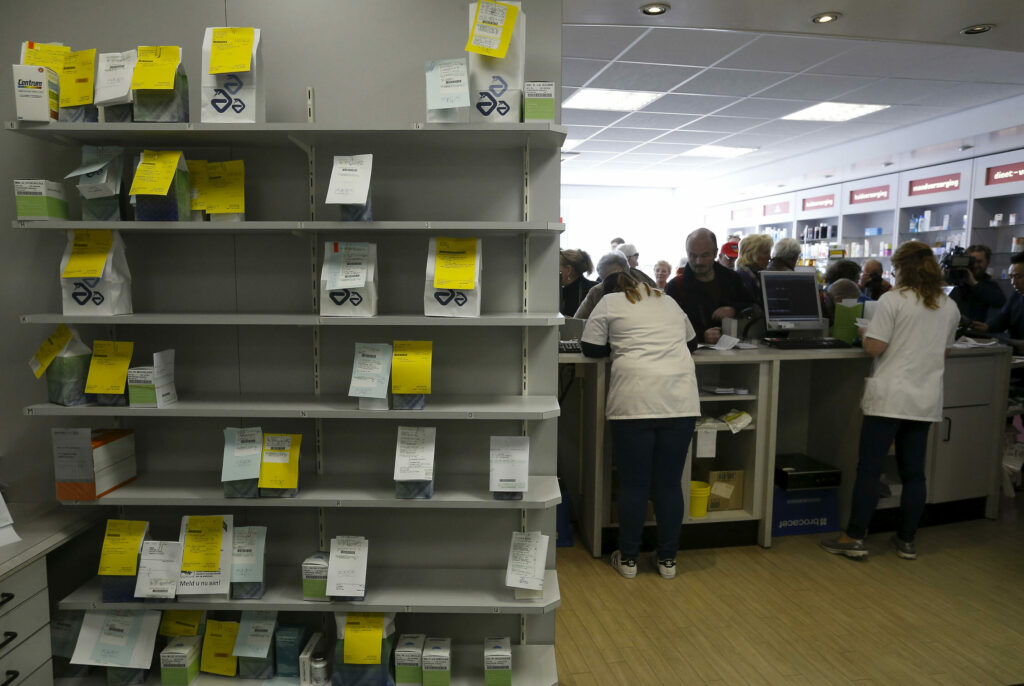EU Member States will soon start better collaborating to address drug shortages, following Belgium's push to launch the Critical Medicines Alliance (CMA). Eventually, more medicines should be produced in the EU again.
In recent years, it has become increasingly common for European countries to regularly face drug shortages. This is because the production of drugs – especially the cheaper generic variants – has shifted to countries such as China and India in the last 20 years, making the EU largely dependant on them.
"Sometimes people have to drive hundreds of kilometres to find the medicine they need," Federal Health Minister Frank Vandenbroucke (Vooruit) said on Flemish radio on Wednesday morning. "There are pharmacists who spend up to ten hours a week just looking for certain drugs, or doctors who get frustrated because the medicine they want to prescribe is nowhere to be found."
Many drugs are simply no longer offered in the EU. "A quarter of generic drugs have already disappeared from the European market, either because they are no longer profitable or because we have production problems in Europe," Vandenbroucke said.
Self-sufficiency and secure supply
The problem, he said, is industrial politics: Europe no longer has the capacity to produce medicines. "We need to produce more ourselves, and we need more security of supply of essential raw materials."
To set that in motion, Belgium brought together 23 EU Member States and urged the European Commission to find ways to do so. The first step was a solidarity mechanism set up last year: "When there is a shortage of a medicine in one country, but another one still has a surplus stock, the first country is helped quickly."
Belgium, among others, has already been able to benefit from this, emphasised Vandenbroucke. "Not long ago, we had problems with thrombolytics [medication prescribed for strokes]. We had severe shortages, but France helped us."
Additionally, a list of 11 vital medicines (which covers commonly used antibiotics such as Amoxicillin, but also the vaccine against Hepatitis B, for example) was drawn up. "For these, the EU needs to do a full screening of the market: where are the vulnerabilities? Where are the stocks?"
Related News
- EU aims at self-sufficiency in medicinal drugs
- Belgium proposes drug exchanges in Europe to offset shortages
- Number of medicines temporarily unavailable rose by 20% in one year
On Wednesday, the CMA is also being launched: a European alliance which includes representatives of the pharmaceutical industry, the health sector and governments. Over the next five years, the CMA should develop concrete proposals to ensure that the EU regains production of basic medicines and that the supply of raw materials and medicines to Europe is secured.
Primarily, Vandenbroucke wants targeted support to go to companies that want to produce in Europe, but also a different kind of financing of medicines. "Look at antibiotics: they should not be used too much. However, some of them have to be ready as soon as you need them. For that, you need a different kind of financing – almost like a subscription to a streaming service."
Vandenbroucke does not want to put a deadline on when all this should be ready. "Getting European production off the ground again will take several years. But we have to start now."

